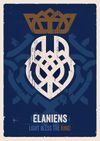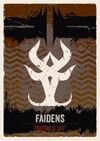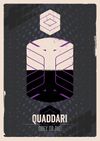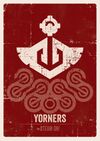Difference between revisions of "New Players"
Stratonian (talk | contribs) |
Stratonian (talk | contribs) |
||
| Line 86: | Line 86: | ||
==Inventory and Items== | ==Inventory and Items== | ||
| − | [[File: | + | [[File:Inventory.png|thumb|300px|The inventory panel.]] |
| − | + | Corepunk's [[inventory]] is small, forcing you to make tough decisions on which items you should throw out. This section should help alleviate that decision. | |
| − | Corepunk's [[inventory]] is small, forcing you to make tough decisions on which items you should throw out. This | ||
===Inventory=== | ===Inventory=== | ||
{{see|text=Main Article:|[[Inventory]]}} | {{see|text=Main Article:|[[Inventory]]}} | ||
| − | The inventory is the place to store all your of your items and currency. Understanding and managing your inventory is pivotal and you should only keep the items that you definitely need. | + | The inventory is the place to store all your of your items and currency. Understanding and managing your inventory is pivotal and you should only keep the items that you definitely need.<br> |
| − | + | It is best practice is to ensure your Inventory is [[Inventory#Sort|sorted]]. You can do this by pressing the double-arrow in the top-right of the inventory panel. You can also look into crafting material-specific [[bags]] for [[Guide:New Players#Crafting & Gathering|gathering]] specific items too. | |
| − | It is best practice is to ensure your Inventory is [[Inventory#Sort|sorted]]. You can do this by pressing the double-arrow in the top-right of the inventory panel. You can also look into crafting material-specific [[bags]] | ||
| − | |||
===Weapons=== | ===Weapons=== | ||
{{see|text=Main Article:|[[Weapons]]}} | {{see|text=Main Article:|[[Weapons]]}} | ||
| − | '''Weapons''' are items that, when equipped, provide large stat boosts and skills. | + | '''Weapons''' are items that, when equipped, provide large stat boosts and skills. Weapon skills appear in slots {{key|D}} and {{key|F}} on the skill bar. |
===Artifacts=== | ===Artifacts=== | ||
{{see|text=Main Article:|[[Artifacts]]}} | {{see|text=Main Article:|[[Artifacts]]}} | ||
| − | '''Artifacts''' are items that any hero specialization can use. [[Artifacts#Active Artifacts|Active Artifacts]] contain extra skills that you can use | + | '''Artifacts''' are items that any hero specialization can use. [[Artifacts#Active Artifacts|Active Artifacts]] contain extra skills that you can use. [[Artifacts#Passive Artifacts|Passive Artifacts]] give constant boosts to your stats, such as [[health]] or [[movement speed]]. Artifact skills can appear in slots {{key|1}} through {{key|6}} to the right of your skill bar, although any item can be placed there. |
| − | |||
===Armor=== | ===Armor=== | ||
{{see|text=Main Article:|[[Armor]]}} | {{see|text=Main Article:|[[Armor]]}} | ||
| − | '''Armor''' in Corepunk is entirely cosmetic. They only ways to increase your defensive capabilities is by levelling up, using weapons and artifacts with defensive skills and/or stat boosts, or using [[Passive talents|Passive Talents]]. | + | '''Armor''' in Corepunk is entirely cosmetic. They only ways to increase your defensive capabilities is by levelling up, using weapons and artifacts with defensive skills and/or stat boosts, or using [[Passive talents|Passive Talents]].<br><br> |
| − | |||
More information about armor will be available upon release. | More information about armor will be available upon release. | ||
Revision as of 13:08, 4 March 2023
New to Corepunk? This guide will cover all there is to know about the basics of the game. This is intended to be a tourist's guide of the wiki, covering different topics ranging from Character Creation to endgame content.
What is Corepunk?
Corepunk (trailer) is commonly described as a combination of both the constant action and strategy of MOBA games and the immersive, seamless open-world of MMORPG games. It is buy-to-play with no pay-to-win aspects whatsoever.
The main mechanic that sets Corepunk apart from the rest of the scene is the open-world Player versus Player (PvP) combat, with the fog of war ensuring you will never be completely safe from ambush. This can deter some people, since you can never wander about completely safe from other players. However, Corepunk's world is so big that these encounters are few and far between, and the Karma System stops excessive abuse of this mechanic.
Corepunk's Player versus Environment (PvE) content is extensive and very difficult, with strong enemy AI, forcing you and/or your party to be strategic. Enemy encounters are scattered throughout the open world, featuring Camps, Dungeons, Mini Bosses, Raids, Wandering Bosses, and World Bosses. There is plenty of both solo and group content.
Getting Started
Corepunk is a daunting game - taking around 80 to 100 hours for your first Character to reach endgame content. In this chapter, we will cover how to join Corepunk's world with style.
Installation
More information about installation will be provided upon release.
Account Creation
To play Corepunk, you must first create an account. More information will be provided about this upon release.
It is also recommended to create an account for Corepunk's official forums to stay informed, ask questions, or explore the community. If you're interested in keeping this wiki up-to-date, you can create an account here.
Server Selection
You are able to select which server your character can play on. Selecting the server closest to you will reduce lag when playing. This step is also important if you want to play with your friends: they must all have characters in the same server to play together.
Currently, you can play on servers for Brazil, the Commonwealth of Independent States (CIS), Oceania, the United States of America (USA), and Korea (planned post-launch).
More information about server selection will be provided upon release.
Creating Your Character
Character creation is the last step before you enter into the world of Corepunk. Here, you can choose your Hero, Weapon Mastery, Passive Talents, appearance, and name. Whilst you can change both your appearance and name, you cannot change your selected Hero at all, and you can only change your Weapon Mastery upin reaching Level 40. Therefore, it is important to take your time to ensure your character is perfect for you - it can make or break your gameplay experience.
There are two steps to Corepunk's character creation: Hero and Mastery selection, and Appearance and name customization.
There are 6 Heroes to choose from, with 3 unique Weapon Masteries each. The Masteries guide summarises each Mastery and their unique playstyle, but in general:
![]() For medium-ranged Heroes focused upon Crowd Control (CC), choose the Bomber.
For medium-ranged Heroes focused upon Crowd Control (CC), choose the Bomber.
![]() For classic fighter Heroes, choose the Champion.
For classic fighter Heroes, choose the Champion.
![]() For lone-wolf damage-dealing Heroes, choose the Mercenary.
For lone-wolf damage-dealing Heroes, choose the Mercenary.
![]() For long-ranged damage-dealers, choose the Pain Reaper.
For long-ranged damage-dealers, choose the Pain Reaper.
![]() For a hybrid of damage and support Heroes, choose the Paladin.
For a hybrid of damage and support Heroes, choose the Paladin.
![]() For unique Heroes with a specific speciality, choose the Warmonger.
For unique Heroes with a specific speciality, choose the Warmonger.
You can click on each portrait to view each Hero and their respective Masteries. It is useful to read the summary text and view the in-game previews of each Mastery's Skills to get a general idea of how each Mastery plays out. Once finished, click on the customise button to continue to appearance customization.
Next, you must choose your character's appearance and name. These are purely cosmetic, but are somewhat important for role-playing and immersion. After customising your character, you can finish by pressing the create button at the bottom of the screen. From here, you can enter the world of Corepunk.
You can also choose your character's passive talents during character creation, but no footage of this has been released yet.
Controls
This chapter will outline Corepunk's important controls and User Interface (UI). A good understanding of these controls will make your gameplay more efficient and fluid.
Please note that all controls mentioned here are defaults, and some keys can be re-binded in the options menu if you see fit.
Movement
You can move by left-clicking on the location that you want your character to travel to on-screen.
Pressing the SPACE key will make your character jump.
Skills
All skills can be activated by either left-clicking on them or pressing their respective key. It is recommended to use keys so you can free up your mouse for movement and UI management.
Each Mastery has 4 unique Skills and a special skill. You can activate these by pressing the Q, W, E, and R keys.
You can choose 2 additional skills, which can be activated by pressing D and F.
You also have 2 weapon skills. These are activated with F1 and F2.
Finally, you can have a maximum of 6 artifact skills, which can be activated using 1, 2, 3, 4, 5, and 6.
Other important controls and buttons will be mentioned here post-launch.
Combat
All about fighting! Having a great foundational understanding of its mechanics will make your PvE and PvP skills a lot better.
User Interface
Here, we will discuss Corepunk's User Interface (UI) and how to use it to your fullest advantage.
Skill Bar
More information about UI will be available upon release.
Inventory and Items
Corepunk's Inventory is small, forcing you to make tough decisions on which items you should throw out. This section should help alleviate that decision.
Inventory
The inventory is the place to store all your of your items and currency. Understanding and managing your inventory is pivotal and you should only keep the items that you definitely need.
It is best practice is to ensure your Inventory is sorted. You can do this by pressing the double-arrow in the top-right of the inventory panel. You can also look into crafting material-specific Bags for gathering specific items too.
Weapons
Weapons are items that, when equipped, provide large stat boosts and skills. Weapon skills appear in slots D and F on the skill bar.
Artifacts
Artifacts are items that any hero specialization can use. Active Artifacts contain extra skills that you can use. Passive Artifacts give constant boosts to your stats, such as Health or Movement speed. Artifact skills can appear in slots 1 through 6 to the right of your skill bar, although any item can be placed there.
Armor
Armor in Corepunk is entirely cosmetic. They only ways to increase your defensive capabilities is by levelling up, using weapons and artifacts with defensive skills and/or stat boosts, or using Passive Talents.
More information about armor will be available upon release.
Quests
Questing is great for gaining Experience quickly. This chapter will cover how they work and important quests to complete.
More information about questing will be available upon release.
Guilds
Need some players to play with? Join a guild!
Guilds are groups of up to 50 players that provide rewards for everyone involved.
Creation
Although it isn't recommended that you create a guild when you are low-level, here is how to do so anyway. You may find this helpful if you want to play with your group of friends.
Once your character reaches level 10, you can create a guild by speaking to a specific NPC and paying a fee.
Joining
More information about guild creation and joining will be available upon release.
Crafting & Gathering
Looking to craft legendary gear? This guide will outline the resources that will help you on your journey.
More information about crafting and gathering will be available upon release.
Professions
Professions, in combination with gathering, professions are a surefire way to earn gold. This chapter will mention important jobs and techniques.
More information about Professions will be provided upon release.
Maps
Whether it's dungeon maps or gathering routes - this section has all the maps you'll ever need!
More guide maps will be available upon release.
Honor System & Karma System
Both the Honor System and the Karma System are very important systems to get to grips with. Using them both to your advantage can mean you can get good equipment fast.
Honor Points
Honor Points are awarded for killing Criminal players, marked in red. Honor Points can then be used as a currency for buying equipment.
Karma Points
Karma Points are penalty points that are given when an Aggressor kills or assists in killing a player coloured Yellow or White. Gaining too many Karma Points can lead to you becoming a Criminal. Criminals are exiled from major cities and drop a random equipped artifact or weapon upon death. You can decrease Karma Points by completing Quests and other various in-game activities. Be careful - there is no maximum amount of Karma Points one can accrue.
AI
Corepunk's AI is known to be quite difficult. Understanding the basics should help you with your PvE journey.
Movement
Enemies tend to spread out in order to avoid Area of Effect skills (AoE), so one must pull them together first before unleashing a splash-damage skill. They can also "kite" the player, meaning they can draw you into an areas of more damage if you're not careful.
Targeting
The experience of a support hero in Corepunk will be completely different to that of other games. AI tends to target support characters, so healers must always be on their toes and their teammates must constantly distract the enemy.
More information about enemy AI will be available upon release.
Dungeons & Raids
Endgame content! What to expect and how to master it.
More information about Dungeons and Raids will be available upon release.
Joining a Culture
Upon hitting level 40, you must make an important choice: which culture should you pick? This section will talk about which one is best for you!
Elaniens
Elaniens are at one with nature; seeing themselves as part of a complex ecosystem. They use light-powered weapons to defend themselves against the depths of the Valley of Sins.
Faidens
Faidens are true patriots. Using mechanical devices to their advantage, they wipe out anybody standing in their way.
Quaddari
Quaddari pride themselves on freedom and limitless opportunity. They live in bustling neon metropolises, but there's a sinister undertone of dire poverty and crime on the streets.
Yorners
Yorners are the innovators; the engineers. They use the power of steam and money to their advantage to make whatever they please. However, life on a glacier is perilous and cold.



